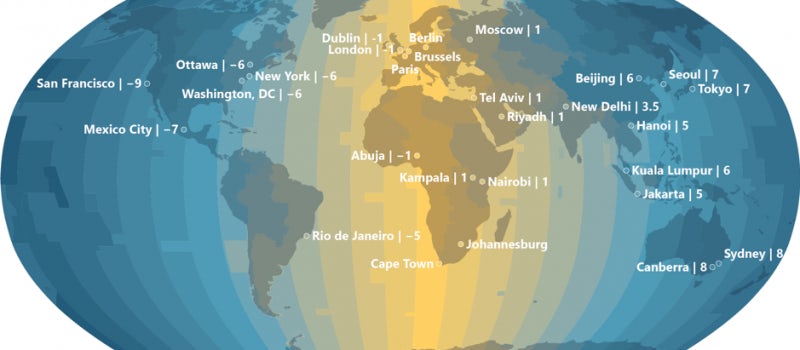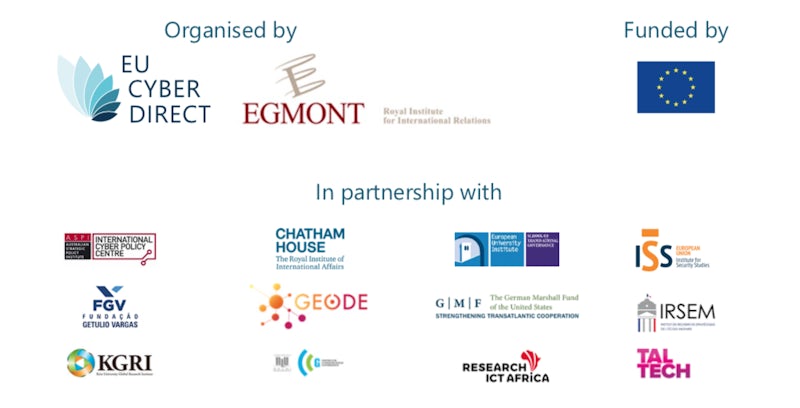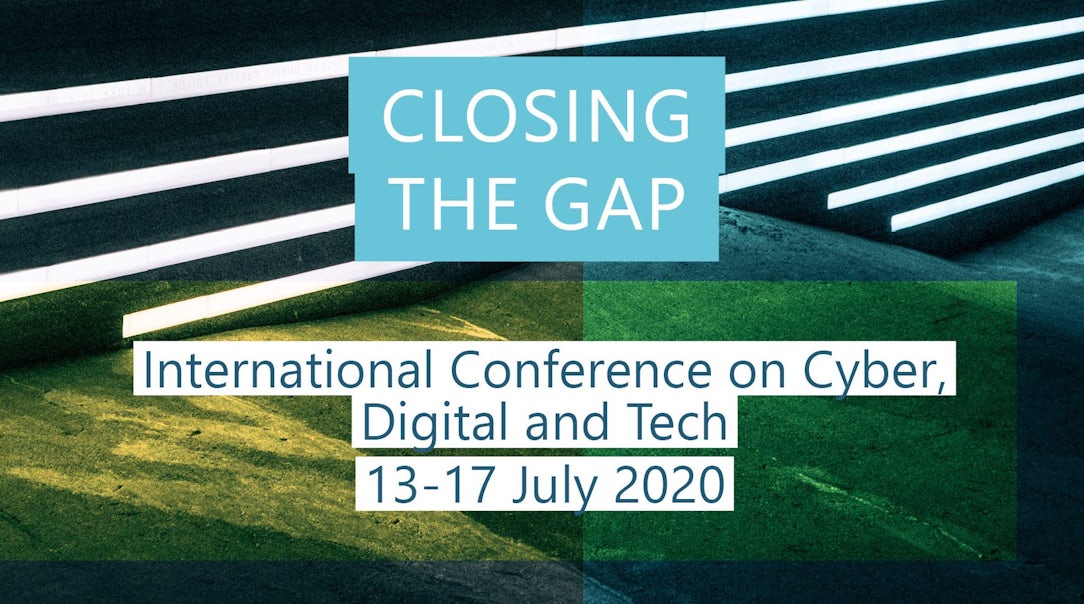As part of the European Cyber Diplomacy Initiative, the EU Cyber Direct project joins forces with the Belgian Ministry of Foreign Affairs and numerous research institutions to organise an international conference that contributes to closing the gap between scholars and practitioners working on cyber-related issues. The conference aims to foster productive exchanges between different generations of scholars (emerging talents and established researchers), disciplines (law, political science, international relations, economics, IT, media studies), sectors (government, private sector, academia, NGOs) and regions (Global South-North).
As an expression of ‘academic diplomacy’, the conference will bring together researchers from around the world, in addition to the government officials and private sector representatives. Initially planned as an academic conference at the Egmont Palace in Brussels, the event is now designed as an online event, which significantly enlarges the scope for participation. The sessions will be organised in two thematic streams – resilience and cyber diplomacy – and will be organised in three different formats:
- Panels: composed of upcoming and established scholars selected on the basis of the submitted abstracts. These are accessible for registered participants through the private page.
- Roundtables: focused on the most topical issues linked to cyber diplomacy and featuring a mixture of senior scholars, practitioners, and policymakers.These are open to the public and accessible through the links in the programme below.
- Workshops: interactive masterclasses to develop concrete skills or provide new perspectives. These are accessible for registered participants through the private page.
Programme | Timezones | Organizers & Partners
Programme
Monday, 13 July
Monday, 13 July
Keynote opening remarks
Click here to join
9.00-9.05 Brussels (CEST) Welcome Remarks
- Gustav Lindstrom, Director, EU Institute for Security Studies
9.05-9.15 Brussels (CEST) Opening keynote remarks
- Mariya Gabriel, European Commissioner for Innovation, Research, Culture, Education and Youth
9.15-9.30 Brussels (CEST) Opening keynote remarks
- Philippe Goffin, Minister of Foreign Affairs and Defence, Belgium
Panel session 1B. Cyber diplomacy: exploring the concept
10.00-11.30 Brussels (CEST)
Chair
- Xymena Kurowska, Central European University, Hungary
Speakers
-
Thomas Renard, Egmont Institute, Belgium & André Barrinha, University of Bath, United Kingdom
Power and Diplomacy in the post-liberal cyberspace -
Marzio Di Feo & Luigi Martino, University of Florence, Italy
The role of Multi-track Diplomacy in reducing conflict stemming from cyberspace -
Joe Burton, Université Libre de Bruxelles & University of Waikato & George Christou, University of Warwick, UK
Bridging the Gap Between Cyber War and Cyber Peace -
Aude Gery, GEODE, France
Norms of Responsible Behaviour in Cyberspace: A Danger for the Security and Stability of Cyberspace?
Discussants
- Bart Hogeveen, ASPI
- Kathryn Jones, Foreign and Commonwealth Office, UK
Roundtable 1. Closing the knowledge gap
13.00-14.00 Brussels (CEST)
Click here to join
Information is the key component of the knowledge-based policy making. In cyberspace, information and knowledge are diffused and shared among many groups of stakeholders. This roundtable will address the following question: How can we address the existing knowledge gaps in order to promote more policy-relevant research and better-informed policymaking?
Chair
- Frederick Douzet, Paris 8, France
Speakers
- Nayia Barmpaliou, World Economic Forum
- Ruhiya Seward, International Development Research Centre, Canada
- Fabrizio Tassinari, School of Transnational Governance, European University Institute
- Hilde Hardeman, Director/Head of the Service for Foreign Policy Instruments, European Commission
Panel session 2B. Unlawful activities in cyberspace: legal and policy responses
15.00-16.30 Brussels (CEST)
Chair
- Joyce Hakmeh, Chatham House
Speakers
-
Fabio Cristiano, Dennis Broeders & Daan Weggemans, The Hague Program for Cyber Norms, The Netherlands
Mainstreaming and countering cyber terrorism: kryptonite for the promotion of digital rights? -
Francis Monyango Otieno, Kenya ICT Action Network
Kenya’s computer misuse and cybercrime act is back: the implementation hurdle -
Ivar Hartmann, Yasmin Curzi & Julia Iunes, FGV Law School Rio de Janeiro, Brazil
The Roles of the Stakeholders in Fighting Cyberterrorism in Social Media -
Trong Van Nguyen, Waseda University, Japan
International cooperation against cybercrime: legal challenges of Vietnam
Discussants
- Philipp Amann, European Cybercrime Centre
- Folake Olagunju, ECOWAS
Tuesday, 14 July
Tuesday, 14 July
Panel session 3A. Data economy and data management
10.00 – 11.30 Brussels (CEST)
Chair
- Louise Marie Hurel, London School of Economics and Political Science / Igarapé Institute, Brazil
Speakers
-
Anjali Kaushik, Management Development Institute, Gurgaon, India
Transborder Data Flows Comparing the EU-India Approaches and a Possible Cooperation Framework
-
Beltsazar Krisetya, Centre for Strategic and International Studies, Indonesia
From e-government to cloud-government: Examining Indonesia’s leapfrogging attempt in data governance - Joanna Kulesza, University of Łódz, Poland
Cybercrime, DNS abuse and cybersecurity due diligence -
Beatriz Kira, University of Oxford, United Kingdom
Digital technology governance: developing countries’ priorities and concerns
Discussants
- Joanna Swiatkowska, AGH Cracow
- Paul Timmers, Oxford University
Panel session 3B. Operationalising cyber diplomacy
10.00 – 11.30 Brussels (CEST)
Chair
- Laura Groenendaal, German Marshall Fund of the United States
Speakers
-
Yuliya Miadzvetskaya, CiTiP – KU Leuven, Belgium
Restrictive measures as a cyber-deterrence tool of the EU Cyber Diplomacy? -
Myong-hyun Go, Asan Institute for Policy Studies, South Korea
Building an Effective Multilateral Framework for Cybersecurity: The Use of Whitelist for Ensuring Responsible State Behavior in Cyberspace -
Jeroen van der Ham, University of Twente, The Netherlands
EthicsfIRST: A Code of Ethics for Incident Response and Security Teams National Cyber Security Centre -
Anastasiya Kazakova, Kaspersky, Russia
Global Transparency Initiative as a framework for increasing trust in cyberspace
Discussants
- Manon Le Blanc, European External Action Service
- Xymena Kurowska, Central European University
Roundtable 2. Closing the international law gap
13.00-14.00 Brussels (CEST)Click here to join
International law is a critical element in the debate about stability and irresponsible state behaviour in cyberspace. Yet, only a handful of governments around the world have made their views on the application of international law in cyberspace known. The purpose of this session is to look at the ongoing initiatives undertaken by both research and policy communities to answer: Does international law matter and how can we close the existing gap linked to its application in cyberspace?
Chair
- Francois Delerue, IRSEM, France
Speakers
- Mike Schmitt, United States Military Academy West Point
- Cathrin Bauer-Bulst, European Commission
- Duncan Hollis, Temple University & Inter-American Juridical Committee, Organization of American States
- Huu Phu Nguyen, PhD Candidate, Associate Researcher, Institute of Strategic Studies, Diplomatic Academy of Viet Nam
- Tania Jančárková, Law researcher, NATO CCDCOE
Panel session 4A. Cyber and digital policies: good practices
15.00 – 16.30 Brussels (CEST)
Chair
- Enrico Calandro, Research ICT Africa, South Africa
Speakers
-
Tinatin Akhvlediani, CEPS, Belgium
Digital and Cyber Dimensions of the EU Association Agreements with Georgia, Moldova and Ukraine -
Eva Claessen, KU Leuven, Centre for Global Governance Studies (GGS), Belgium
Defining virtual borders – the impact of strategic narratives on Russia’s role in cyber norm development -
Ahmet Salih Bıçakcı & Ayhan Gücüyener Evren, Kadir Has University, Turkey
Sisyphean Task Of Building Cyber Security Culture And Resilience: Examples Of Israel And Turkey -
Bruna Toso de Alcântara, Federal University of Rio Grande do Sul (UFRGS), Fellow at the Alexander von Humboldt Institute for Internet and Society (HIIG), Brazil
Is the Digital Three Seas Initiative a model to be exported? Applicability to the Brazilian case to mitigate security concerns with 5G
Discussants
- Joanna Kulesza, University of Łódz, Poland
- Eneken Tikk, Cyber Policy Institute, Estonia
Panel session 4B. Democracy in the digital age
15.00 – 16.30 Brussels (CEST)
Chair
- Ivar Hartmann, FGV Law School Rio de Janeiro, Brazil
Speakers
-
Arthur Ernest Gwagwa, The Regional Cybersecurity Capacity Centre for Southern Africa (C3SA), Strathmore Law School, South Africa
Engaging citizens on cybersecurity issues to safeguard African elections in the digital democracy era -
Pavlina Pavlova, OSCE Office for Democratic Institutions and Human Rights, Warsaw, Poland
The human dimension of cybersecurity: Case study of human rights defenders -
Adam Pontius, Central European University, Hungary
The democratic state as an actor or an arena? Examining the impact of cyber on efforts to referee democracy
Discussants
- Sophia Ignatidou, Academy Associate, Chatham House
-
Michael Aendenhof, Ministry of Foreign Affairs, Belgium
Wednesday, 15 July
Wednesday, 15 July
Panel session 5A. New technologies and cybersecurity
10.00-11.30 Brussels (CEST)
Chair
- Simona Soare, EU Institute for Security Studies
Speakers
-
Moonyati Yatid, Institute of Strategic and International Studies (ISIS) Malaysia
Security Concerns in Artificial Intelligence: Current Approaches in ASEAN and Considerations for Malaysia -
Lorenzo Pupillo, Centre for European Policy Studies (CEPS), Belgium
Artificial intelligence and cybersecurity: avoiding the technology trap -
Gills Lopes, Brazilian Air Force University, Universidade da Força Aérea, UNIFA, Brazil
The cyber dimension in Aerospace Power: new perspectives for Brazil -
Amy Ertan, University of London & Christian Perrone, ITS Rio
Managing 5G security challenges: options for multi-stakeholder governance
Discussant
- Ken Katayama, KEIO University
- Oscar Jonsson, Center for the Governance of Change, Spain
Panel session 5B. Learning from the best? Comparing national approaches
10.00-11.30 Brussels (CEST)
Chair
- Hannes Ebert, German Marshall Fund of the United States, Washington, D.C.
Speakers
-
Louise Marie Hurel, London School of Economics and Political Science / Igarapé Institute, Brazil
Pathways to Cyber Policy: Unpacking Brazil’s Domestic/Foreign Policy Paradox(es) -
Jayadev Parida, Amity University, India
India’s Cyber (In)Security Concerns and Global Ambitions -
Phuong Nguyen & Thanh Trung Nguyen, University of Social Sciences and Humanities, Vietnam National University-HCMC
Cyber security in Vietnamese Context: Policies and Practices - Rogier Creemers, Leiden University, The Netherland
Cybersovereignty in China: Rhetoric and Realization -
Natalie Thompson, Carnegie Endowment for International Peace
Targeted Financial Sanctions and Countering Malicious Cyber Activity
Discussant
- Laura Carpini, Ambassador for Cyber Issues, Italy
- Patryk Pawlak, EU Institute for Security Studies
Roundtable 3. Closing the accountability gap
13.00-14.00 Brussels (CEST)
In the debate about responsible state behaviour, the question of accountability – that of states, private actors and individuals – has become the key to understanding responsibilities of individual stakeholders in the cyber ecosystem. While most of the conversation to date has focused on the issue of attribution as a silver bullet for more accountability, this session will aim to answer: How do we establish accountability for irresponsible and/or malicious behaviour in cyberspace?
Chair
- Dennis Broeders, The Hague Program for Cyber Norms
Speakers
- Kerry-Ann Barrett, Organization of American States
- Heli Tiirmaa-Klaar, Ministry of Foreign Affairs, Estonia
- Wiktor Staniecki, European External Action Service
- Arjun Jayakumar, ORF, India
Panel session 6A. Digital transformation and cyber capacity building
15.00 – 16.30 Brussels (CEST)
Chair
- Ian Wallace, German Marshall Fund of the United States, Washington, D.C.
Speakers
-
Babatunde Okunoye, Paradigm Initiative, Nigeria
Internet Access in Africa: Towards a Human Rights centred approach -
William H. Dutton, Patricia Esteve-Gonzalez, Ruth Shillair & Sadie Creese, University of Oxford, United Kingdom
The Shaping and Impacts of Cyber Security Capacity -
Ilina Georgieva & Tjerk Timan, TNO, The Netherlands
Openness Online: The role of strategic visibility in the shaping of cyber norms -
Xuechen Chen & Xinchuchu Gao, King’s College London, United Kingdom
Bridging the Gap: How Can the EU’s Digital Connectivity Strategy Fit into East Asia’s Digital Landscape
Discussant
- Francesca Bosco, CyberPeace Institute,
- Enrico Calandro, Research ICT Africa, South-Africa
Panel session 6B. Different shades of norms: regional perspectives
15:00 – 16:30
Chair
- Caitriona Heinl, Director, The Azure Forum for Contemporary Security Strategy, Ireland
Speakers
-
Arindrajit Basu & Aman Nair, Centre for Internet&Society, India
Confidence Building Measures and the Crystallization of Norms for Responsible State Behaviour in Cyberspace:A framework for South Asia -
Fitri Bintang Timur, Centre for Strategic and International Studies (CSIS), Indonesia
Pushing for Progress: Extents and Limits for ASEAN Adoption of Responsible Behaviour in the Cyberspace -
Nils Berglund & Enrico Calandro, Research ICT Africa, South Africa
African Positions in an Era of Cyber Norms Contestation - Alexandra Paulus, Stiftung Neue Verantwortung & Chemnitz University of Technology
Brazil’s engagement with international cyber norms processes
Discussant
- Jacqueline Eggenschwiler, University of Oxford
- Daniel McBryde, Global Affairs Canada
- Chris Painter, Chair of the Foundation Board, Global Forum on Cyber Expertise
Keynote address: Closing the Freedom gap
Click here to join
18.00-18.30 Brussels (CEST)
- Karuna Nundy, Advocate, Supreme Court of India
Thursday, 16 July
Thursday, 16 July
Keynote address: Closing the gender gap
9.30-9.50 Brussels (CEST)
- Moudhi AlJamea, ICT General manager, STC academy
Panel session 7A. Cyber resilience: from concepts to practice
10.00 – 11.30 Brussels (CEST)
Chair
- Julia Schuetze, Stiftung Neue Verantwortung
Speakers
-
Edrine Wanyama, Collaboration on International ICT Policy in East and Southern Africa (CIPESA), Uganda
Improving Cyber Protection of Consumers in Africa: A Four-Country Comparative Analysis -
Jan Martin Lemnitzer, Copenhagen Business School, Denmark
Why cyber security insurance should be regulated and compulsory -
Mark Corcoral, CERI-Sciences Po and IRSEM, France
Setting the Agenda, Not the Policy: America’s Limited Success in Rhetorically Coercing Europe into a Huawei 5G Ban
Discussant
- Thomas Buchanan, AXA France
- Agnieszka Wierzbicka, European External Action Service
- Mihoko Matsubara, NTT Japan
Panel session 7B. Identifying trends in cyber defence
10.00 – 11.30 Brussels (CEST)
Chair
- Motohiro Tsuchiya, KEIO University
Speakers
-
Farlina Md Said, Institute of Strategic and International Studies Malaysia
A White Sheet for Cyber Command in Developing states -
Tobias Liebetrau, University of Copenhagen
Defending in the grey zone: Three European approaches -
Josh Gold, University of Toronto, Canada
Offensive cyber operations: comparative analysis of Five Eyes countries
Discussant
- Jakob Bund, Centre for Security Studies, ETH Zurich
- Chelsey Slack, Deputy Head, Cyber Defence Section, NATO
Workshop 1. Closing the gap in practice: Pitching ideas
13.00 – 14.30 Brussels (CEST)
During this informal and hands-on session, participants will have a chance to discuss concrete project ideas with other participants and people directly involved in different aspects of the project cycle: from design to funding and communication.
Ideas will be selected from the whiteboard:
- 5 minutes presentations of the ideas (3 pitches)
- 5 minutes: general comments by experts on funding, research design, outreach
- 15 minutes breakout room on each idea/pitch
- 20 minutes common discussion
Workshop 2. Careers in cyber
15.00 – 16.15 Brussels (CEST)
Chair
- Emily Taylor, Chatham House
Speakers
- Danielle Kriz, Palo Alto Networks
- Anriette Esterhuysen, Association for Progressive Communications
- Madeline Carr, University College London
- Teki Akuetteh Falconer, Founder & Executive Director at the Africa Digital Rights’ Hub
Friday, 17 July
Friday, 17 July
Keynote address: Closing the diversity gap
9.30-9.50 Brussels (CEST)
- Johanna Weaver, Department of Foreign Affairs and Trade, Australia
Workshop 3: Funding Cyber Research
11.00 – 12.15 Brussels (CEST)
Chair
- Caitriona Heinl, Director, The Azure Forum for Contemporary Security Strategy, Ireland
Speakers
- Eva Junyent, European Commission, Service for Foreign Policy Instruments
- Graciela Selaimen, Ford Foundation
- Eli Sugarman, Hewlett Foundation
- Rachael Falk, Australian Cybersecurity Cooperative Research Centre
Roundtable 4: Closing the geographical gap
13:00 – 14:00 Brussels (CEST)
The study of cyber-related issues and the number of policy processes and initiatives addressing cyberspace have grown exponentially over the past decade. Yet, the scholarship on the topic as well as policy debates are dominated by a small group of countries in what some call Global North. This session aims to answer: What are the main obstacles to a more inclusive debate about cyber and what are the instruments and mechanisms at our disposal to make this happen?
Chair
- Enrico Calandro, ICT Research Africa
Speakers
- Luca Belli, CyberBRICS
- Nibal Idlebi, Chief of Innovation Section, United Nation-Economic Social Commission for Western Asia (UN-ESCWA)
- Gbenga’ Sesan, Paradigm Initiative
- Philip Lark, George C. Marshall European Center for Security Studies
Timezones

Organizers & Partners
As part of the European Cyber Diplomacy Initiative, the EU Cyber Direct project, Egmont Institute, and the Belgian Ministry of Foreign Affairs in partnership with other research institutions organised this international conference for scholars, policy analysts and practitioners working on cyber-related issues.


